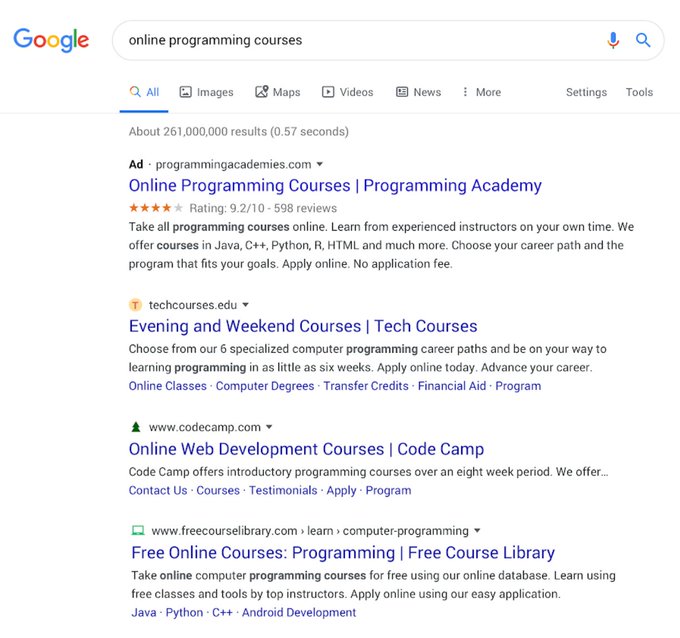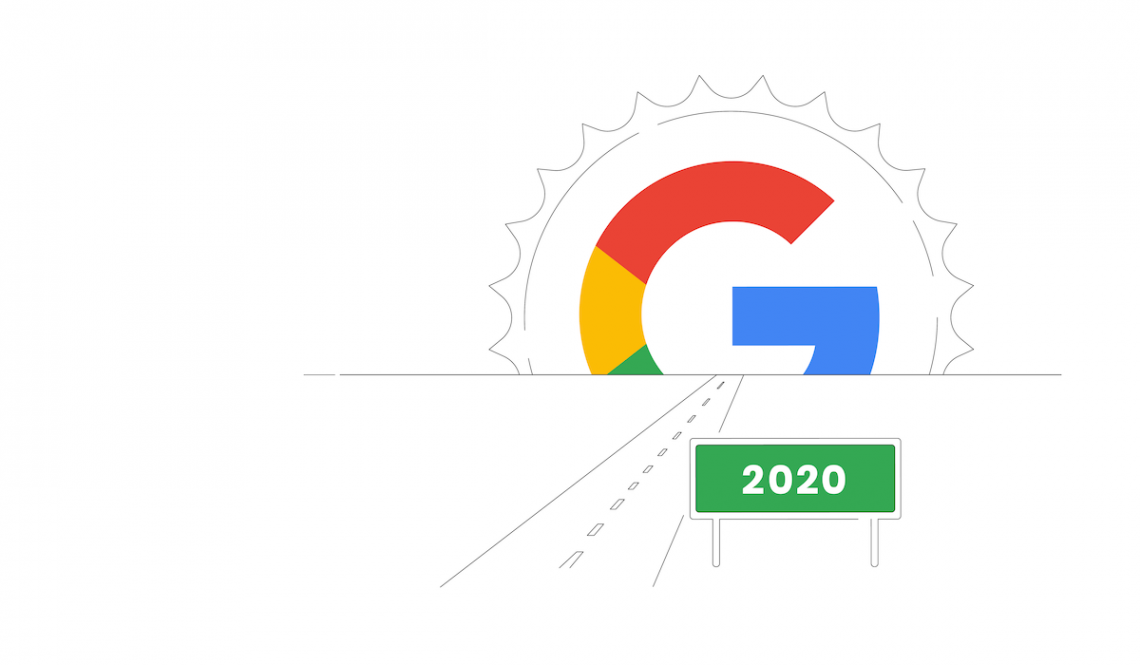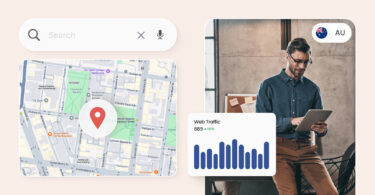Before we start talking about some of the most significant Google changes of the past few years, let’s take a moment to recognize how important Google’s search engine is for your business.
Google’s search engine plays a key role not only in how customers find you online but in how you stand out versus your competition. This is why whenever the Google search algorithm goes through changes, it makes news.
Let’s go back to 2020 to see what kicked off the recent batch of changes. In early 2020, Google made a core update. Danny Sullivan, Google’s Public Search Liaison, tweeted about the update.
He said, “We (Google) do updates all the time.”
While it’s true that small changes happen throughout the year, to the tune of 3000 per year or more,this update was larger and once again revealed that changes to the Google search engine can have a major impact on your company.
As a business owner, you need to update your knowledge of how the search engine works by keeping up with Google changes. SEO in 2024 will be all about your site’s E-E-A-T, which stands for Experience-Expertise-Authoritativeness-Trustworthiness.
So, for your content to rank high in search, you need to be an expert on the topic, able to speak with authority, and trustworthy. Sounds easy, right? If the content on your site abides by these three rules, you have nothing to worry about.
Well, that’s easier said than done. It starts with understanding the changes. So, before you hit the keyboard to work on your content, let’s understand some of the last half-decade of Google Changes and what you, as a business owner, need to know.
Changes in the Google search algorithm
Google’s search engine is constantly evolving and getting smarter. In late 2019, Google updated its algorithm based on BERT (or bidirectional encoder representations from transformers). BERT uses Artificial Intelligence (AI) and a massive data set to help understand what people are searching for. Where a few years ago, it only caught keywords in search, today the search engine also understands relevancy. Each update and change makes the algorithm smarter. This is so that the search engine better understands the end user’s (your customers) search intent.
Pandu Nayak, Google VP of research, said “This is the single biggest … most positive change we’ve had in the last five years and perhaps one of the biggest since the beginning.”
What does this change mean for your business?
Just stuffing your content with keywords won’t achieve good results. BERT is reading your content closely to understand how well your content matches with search intent. Work on creating top-quality content for your customers, and not for the search engine. If your content is genuinely providing value, it will rank.
What about “local” and “near me’ searches?
Studies show that 92% of customers choose businesses on the first page of search results. Google said that the number of mobile searches checking for local businesses grew by over 250% between 2017 and 2019. According to Google changes, there are three factors that matter when it comes to ‘near me’ searches: distance, prominence, and relevance.
What does this change mean for your business?
Reviews, reviews, reviews: No such thing as too many reviews
Reviews will continue to have an important influence on the ranking of the website. Businesses with positive reviews will continue to rank higher in regular and local searches. Websites that get reviews and comments will also rank higher in searches.
What does this change mean for your business?
Google places a high value on user-generated content, which also includes reviews. Respond and interact with your customers in comment sections, get regular reviews and monitor listings — Google is paying attention (as are your future customers).
Think of the bigger Schema of things
Simply put, schema helps search engines understand what content is present on a page. SEO experts swear by Schema.org and your in-house SEO guy will agree that it is extremely helpful in getting those SEO results. Schema helps Google understand if there is a list or a survey or an image on a page so that it brings up the appropriate search results. ThenGoogle announced that starting from April 6, 2020, it will go all-in with Schema.org and will no longer support data-vocabulary markup (another type of code) for rich results.
What does this change mean for your business?
Start using Schema in your relevant pages, if you don’t already do so. It will help you get traffic.
Changes to links and user-generated content
When you add links to your content, you are telling Google to “do-follow” or “no-follow” the link. Sponsored and User-Generated Content (UGC) are considered no-follow links.
[Preformated] Tech tip: No-follow links are links with a rel=”nofollow” HTML tag applied to them. When a link is a no-follow, it just tells search engines to ignore that link for PageRank.From March 1, 2020, Google reads these links and considers them hints while indexing your site.
According to Google: “Links contain valuable information that can help us improve search, such as how the words within links describe content they point at.”
What does this change mean for your business?
Differentiating between sponsored and UGC links can help Google understand your content better and give your search ranking a boost! And yes, make sure you use proper ‘anchor text’ in case you want Google to take the hint!
The end of rich snippets
Previously, Google allowed businesses to use review schema to show the business’s overall star rating in their search result through a rich snippet. These rich snippets helped businesses stand out in comparison to their competitors in search results.
In late 2019, Google banned “self-serving reviews”. Google has defined this as “reviews of a business on the business’ own site”. This means that websites with schema “LocalBusiness” or “Organization” will no longer be able to display rich snippets in search results. Remember, self-serving reviews are reviews posted by a business on the business’s own website. Third-party sites, like Birdeye, will still be able to display rich snippets.
What does this change mean for your business?
There shouldn’t be a big change in your website’s search rankings. Rich snippets will no longer show on your website, but they will show on your Birdeye profile .
The way forward is mobile-first
In 2022, the mantra was to build mobile-first websites and then adjust them for desktop. Mobile devices accounted for 53% of paid-search clicks in 2022 and this number has only continued to increase.
Users typically bounce off a page with low speed. By building mobile-first websites, your website is also winning in the speed game. In recent years Google has made it clear that page speed is an important ranking factor.
What does this change mean for your business?
Use SEO best practices like avoiding redirects to other pages, optimizing images, among other things to ensure that your website is mobile-friendly.
Changes to how Google Ads show up
You may have noticed that search results and Google ads look quite similar to each other.
Talking about this Google said they would now be “presenting site domain names and brand icons prominently, along with a bolded “Ad” label for ads.” This is definitely good news for publishers and site owners since users need to be paying close attention to know if they are clicking on the content they are searching for or ads.

What does this change mean for your business?
Considering investing in Google Ads? Now is probably a good time. Experts think that Google Ads might have a higher click-through rate because of Google’s latest change, which makes it difficult for a user to differentiate between Ads and content.
Featured snippets to count as a web page listing
First, what are featured snippets? They are a format of content in which the answer to the user’s search question appears directly and concisely. A featured snippet comes up right on the search results page. The user doesn’t have to click through to a specific result.
Google also decided to de-duplicate featured snippets. This means that featured snippets are counted as first-position results and are part of organic search results.
Speaking about this, Danny Sullivan, Google’s Public Search Liaison, said, “If a web page listing is elevated into the featured snippet position, we no longer repeat the listing in the search results. This declutters the results and helps users locate relevant information more easily. Featured snippets count as one of the ten web page listings we show.”
Images are not de-duplicated if the image URL is different from the text. Image carousels, listings, and top stories are not duplicated either.
What does this change mean for your business?
While website owners feared this would mean a loss in traffic to their websites, studies have noticed insignificant changes so far. It is still a good idea to try and rank for a Google Featured Snippet.
On-site SEO: It is all about what’s on the page
On-site SEO is an umbrella term for every detail on the page. This includes metadata, video, image tags, amount of text on the page, interlinking, keyword use, H1s/H2s, among other things and is still pretty important. Yes, Google algorithm has gone through a ton of changes and is much smarter about picking up relevant information but on-site SEO is still key.
In their own words, Google’s ‘How Search Works’ report states, “The most basic signal that information is relevant is when a webpage contains the same keywords as your search query. If those keywords appear on the page, or if they appear in the headings or body of the text, the information is most likely to be relevant.”
What does this change mean for your business?
The biggest change to on-site SEO, keeping in mind BERT, is that keyword density is no longer a strong focus. The focus should be on creating a relevant piece of content that adds value to the user.
Conclusion: At the end of the day what do these Google changes really mean?
Keeping up with Google’s changes and beyond is important. You want to make the search engine work for you and your content. But, that doesn’t mean that you change your content strategy every time there is a change. The biggest learning from Google’s changes is that content is king, indeed.
Google wants you to create good quality content that provides value to real people. Gather and respond to user-generated content (reviews, comments on social media, etc.), post this content on social media, manage all your listings for consistency and accuracy, and reap the rewards of your efforts. Don’t create content for the search engine. Create content for your customers and end-users. Google will find you.
Be the best with Birdeye
With Birdeye, businesses can stay on top of every aspect of content and customer feedback — all from a single dashboard! Whether you need to improve your public face with Birdeye Listings AI, or want to turn reviews into a powerhouse for your business with Birdeye Reviews AI, we’ve got you covered.

Originally published









